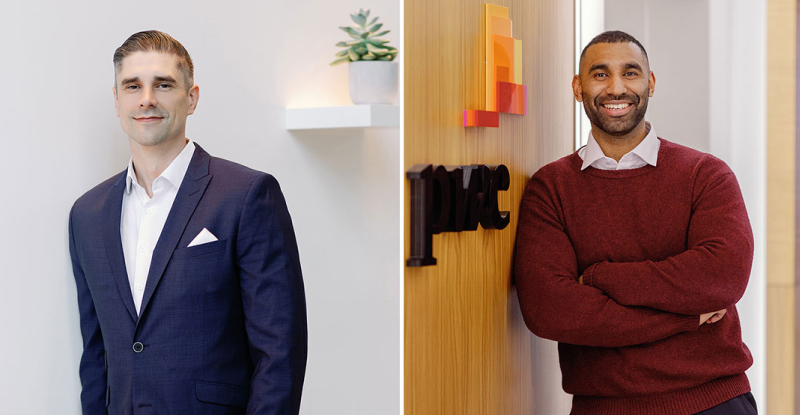
Self-confidence is the belief in your ability to accomplish the task at hand. Extensive evidence shows this belief in oneself has positive impact on performance. Research shows that self-confidence is a universal skill that anyone can learn with little effort, not an innate ability reserved for the elite among us.
In my career, I’ve helped individuals and teams to achieve success, including in my current role as vice-provost of student affairs at Dalhousie University, and the ten years I spent at Ryerson University, where I served from 2010 to 2018. And in order to help others succeed, I’ve needed to believe in myself. When I arrived at Ryerson, I went from being a soccer coach to director of athletics at an institution with over 40,000 students and a reputation as one of the most innovative and entrepreneurial universities in Canada. Overnight, I became responsible for a department of 40 staff members and a budget of $3 million.
To help me gain the self-confidence I needed to take on my new challenges, I wrote what I call my “self-confidence letter.” I was coming off a high point in my career, as I had just coached the men's soccer team at Graceland University in Iowa to its first national championship. One part of my letter reads as follows: "Congratulations, Ivan, on completing your PhD before turning 40," while another reads: "The national championship is an incredible achievement. Well done!"
Whenever I felt any self-doubt in my first year at Ryerson, I re-read my self-confidence letter and it inspired me to believe in myself. When I reflect on the successes I helped to achieve at Ryerson, including a surge in student engagement and helping to build a nationally-ranked athletic program, I’m reminded of that letter – and it stands as a symbol of how self-confidence lies at the heart of success.
But writing a self-confidence letter is only part of the process. Here are four ways to help you develop the skill of self-confidence and boost your performance.
1. Repetition, repetition, repetition
As Malcolm Gladwell's 10,000-hour rule tells us, skills develop through focused and repeated practice. Self-confidence is no different. You need to continually face and overcome reasonable challenges that reinforce your belief in yourself. Self-confidence doesn't come from staying in your comfort zone, rather from pushing yourself to achieve at an appropriate next level. When you face increasingly difficult challenges, you build small amounts of self-confidence. You can then transfer that belief from one context to another.
You need to practice finding your self-confidence over and over and over again until the task is no longer novel. It's like learning to drive a stick shift. At first, it's all you can do to keep from stalling. Then, you begin to shift fluidly. Eventually, you can start up at a red light on a hill with a dump truck on your tail without sweat streaming down your face. Over time, with thousands of hours of practice, driving standard becomes second nature -- and so is your belief in yourself.
2. Have three self-affirmations
Before I speak to a large audience or lead an important meeting, I use three affirmations:
- "I am the captain of my ship and the master of my fate,"
- "Nobody outworks me," and
- "I got this."
I use these phrases to create a positive mindset. This technique is so effective that I once had my soccer players write their own affirmations on a wristband they wore during games.
Research shows that a positive mindset alters performance. Athletes are stronger and more effective when they use positive self-talk. If you see them clap their hands after an error or miss, they are actively reclaiming a positive mindset. In business and industry, positive affirmations lead to a 37 per cent increase in sales and 19 per cent more efficient and accurate diagnosis for doctors.
Create three affirmations that put you in a positive frame of mind, and repeat them regularly. Tape them to your bathroom mirror or keep them in your briefcase or desk -- whatever works for you.
3. Write your own self-confidence letter
Just as I did before starting at Ryerson, write to yourself in a time of success for inspiration when times get tough. There will always be new skills to learn, challenges to face, and projects or roles that push you to your limit. Everyone has times when their performance is not what they've hoped. When that happens, pull out your letter and remind yourself of what you have achieved and why you believe in yourself.
4. Surround yourself with positive people
Everyone needs people who believe in them. One of my greatest supporters is my partner Polly, who has believed in me from the start and who always reminds me not to let anyone determine how I feel about myself.
We are highly influenced by the people around us. Lack of support and encouragement can infect us with self-doubt. Surround yourself with colleagues, family members, friends, and teammates who reinforce your belief in yourself.
Developing and deepening our self-confidence is an ongoing process. But with step-by-step approaches like the ones above, we can increase our inner strength and resiliency, as well as improve our performance.
An award-winning coach, educator, and leader, Dr. Ivan Joseph has spent his career leading cultural transformation, helping people believe in themselves, and creating cohesive teams.
Originally published by Huffington Post



